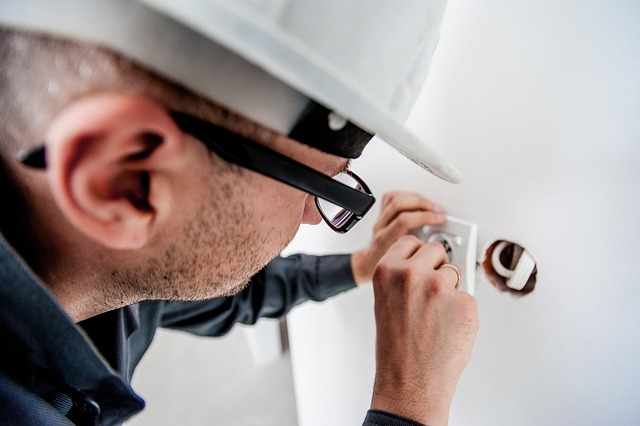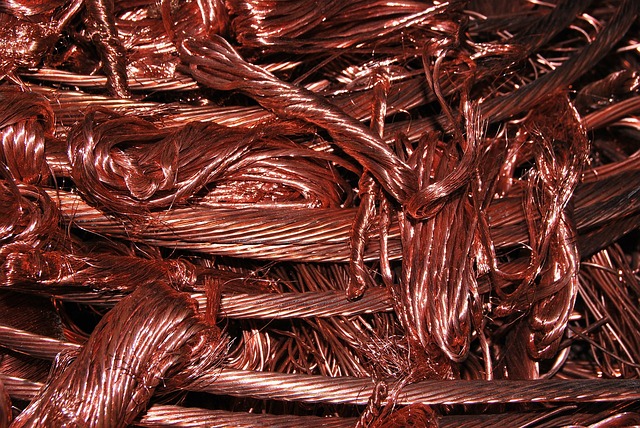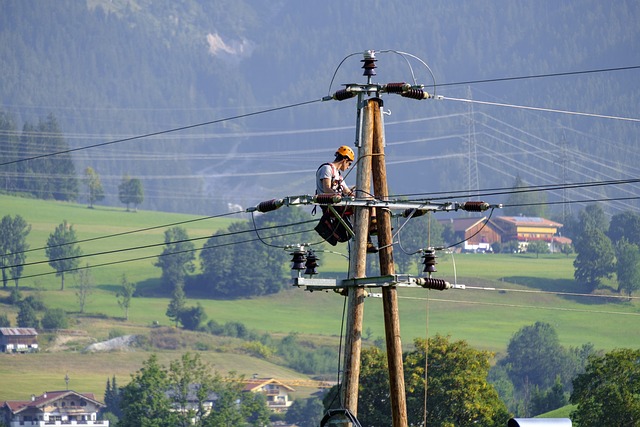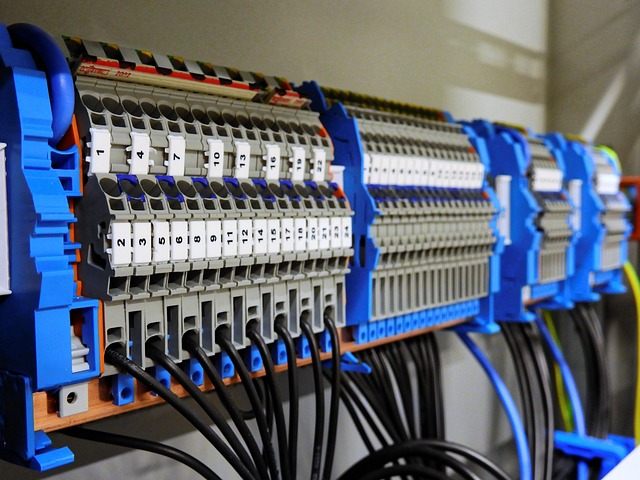Fuses and circuit breakers are critical safety components in electrical systems, with fuses using a metal filament that breaks upon overcurrent, while circuit breakers feature automatic switches for quicker responses. Upgrading old fuses to modern circuit breakers enhances safety, as outdated fuses offer limited protection against overcurrent events and short circuits. Electricians recommend this upgrade, especially in older homes, to prevent fires and electrical damage. The process involves turning off power, removing old fuses, understanding wire connections, and selecting suitable circuit breakers based on voltage, current, and load by a qualified electrician for optimal efficiency and safety.
Looking to upgrade your home’s electrical safety? It’s time to consider replacing those outdated fuses with modern circuit breakers. This simple switch can significantly enhance your property’s electrical system.
In this comprehensive guide, we’ll take you through the process, from understanding the basics of fuses and circuit breakers to exploring the numerous benefits of an update. We’ll also provide step-by-step instructions and expert tips on selecting the ideal circuit breaker for your needs, ensuring a safer and more efficient electrical setup. Let’s get started with your transformation!
- Understanding Fuses and Circuit Breakers: A Basic Overview
- Why Replace Old Fuses with Modern Circuit Breakers?
- The Advantages of Using Modern Circuit Breakers
- Steps to Replace Old Fuses with Modern Circuit Breakers
- Choosing the Right Type of Circuit Breaker for Your Home
Understanding Fuses and Circuit Breakers: A Basic Overview

Fuses and circuit breakers are both crucial components in electrical systems, designed to protect against overcurrent conditions that could cause damage or even fires. A fuse is a small device that contains a metal filament; when the current flowing through it exceeds a certain limit, the filament melts or breaks, interrupting the circuit. This action prevents excessive electricity from reaching the connected devices, thereby safeguarding them from potential harm.
Circuit breakers, on the other hand, operate using a switch that opens or closes automatically in response to electrical faults. They can detect and interrupt overcurrent conditions faster than fuses, making them more efficient at protecting modern electrical systems. A circuit breaker’s tripping mechanism allows for easier reset compared to replacing a blown fuse, which requires cutting out the damaged component. This distinction makes circuit breakers a preferred choice for many electricians in residential, commercial, and industrial settings, especially with the evolving demands of today’s electrical infrastructure.
Why Replace Old Fuses with Modern Circuit Breakers?

Replacing old fuses with modern circuit breakers is a significant upgrade for any electrical system, recommended by most electricians. Old-style fuses, while once effective, have limited protection compared to today’s advanced circuit breakers. Circuit breakers offer enhanced safety features that prevent overcurrent and short-circuit situations from causing damage or even fires.
This replacement is particularly crucial in older homes where the wiring might not meet current safety standards. A professional electrician can identify potential hazards and ensure that the electrical panel is up to date with modern circuit breaker technology, providing better protection for the entire home’s electrical system.
The Advantages of Using Modern Circuit Breakers

Modern circuit breakers offer several advantages over traditional fuses, making them a preferred choice for electricians and homeowners alike. One of the key benefits is their superior safety features. Circuit breakers are designed to interrupt the electrical flow in case of an overload or short circuit, preventing potential hazards like fires or electrical shocks. This automatic shutdown mechanism is absent in old fuses, which require manual replacement and can pose risks if not handled properly.
Additionally, circuit breakers provide better protection for modern electrical systems. They can handle higher voltage loads and are more responsive to sudden changes in current, ensuring the longevity of your wiring. With their readily available replacement options and easy installation, electricians can quickly upgrade outdated fuse boxes to safer, more efficient circuit breaker panels, enhancing overall home or building safety.
Steps to Replace Old Fuses with Modern Circuit Breakers

Replacing old fuses with modern circuit breakers is a straightforward process that every homeowner or professional electrician should familiarize themselves with. It’s an essential task for maintaining a safe and efficient electrical system. Here’s how to do it:
1. Safety First: Before beginning, ensure the power is turned off at the main electrical panel. Test the circuits with a voltage tester to confirm there’s no live current flowing. Safety glasses and gloves are also recommended to protect against potential hazards.
2. Identify and Remove Old Fuses: Locate the outdated fuses in your panel and remove them carefully, taking note of their wire connections. Older fuse boxes often require specific tools for removal. Once out, inspect the wires to understand the circuit’s layout.
Choosing the Right Type of Circuit Breaker for Your Home

When replacing old fuses with modern circuit breakers, it’s crucial to select the appropriate type for your home’s electrical system. An electrician can help identify factors like voltage, current, and circuit load to choose between main disconnects, transfer switches, or standard circuit breakers. Different types serve distinct purposes—main disconnects allow easy shut-off of power to the entire house, while transfer switches enable backup power during outages. Standard circuit breakers protect against overloads and short circuits, ensuring safety and preventing damage to your electrical components.
The right circuit breaker type ensures your home’s electrical system functions optimally and securely. An electrician can guide you in selecting breakers that match your specific needs, enhancing overall efficiency and safety. Remember, improper installations can lead to serious risks, so always rely on professionals for this crucial task.
Upgrading from old fuses to modern circuit breakers is a smart move for any homeowner. As discussed, circuit breakers offer numerous advantages over traditional fuses, including improved safety, easier maintenance, and better protection against power surges. By following the simple steps outlined in this article and choosing the right type of circuit breaker, you can ensure your home’s electrical system is safe, efficient, and future-proof. Consider reaching out to a qualified electrician if you need assistance with this upgrade.
